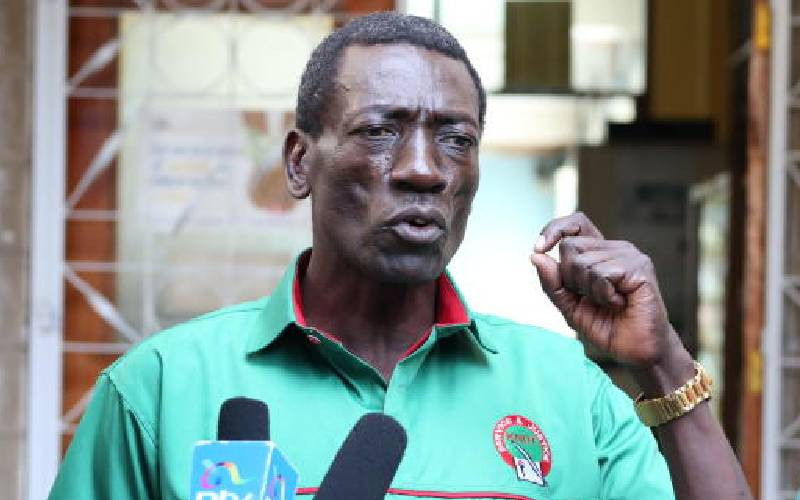The reopening of public schools for the third term is at risk of being disrupted following a fresh threat of industrial action from two major teachers’ unions.
The Kenya Union of Post Primary Education Teachers (Kuppet) and the Kenya National Union of Teachers (Knut) have announced plans to strike if the government fails to implement promised salary increments and address other key issues.
On Tuesday, Kuppet joined Knut in calling for a boycott of work starting in September, citing the government’s failure to implement the second phase of the 2021-2025 Collective Bargaining Agreement (CBA), which was due to take effect in July.
The unions are also demanding the employment of 20,000 new teachers and the conversion of 46,000 intern teachers to permanent and pensionable terms.
“The union’s organs are being mobilized for a national strike to force the full implementation of the 2021-2025 CBA,” Kuppet stated.
“We are also calling for the restoration of the Sh10 billion cut from the Teachers Service Commission (TSC) budget, which is a clear violation of the CBA.”
Knut Secretary General Collins Oyuu emphasized that the CBA is a legal and binding document, which the National Treasury is obligated to fund.
“There is no way the National Treasury, which is fully aware of the existence and content of the agreement, can backtrack on the CBA by failing to adequately fund the TSC,” Oyuu said.
The unions have also criticized the government for reducing the Free Day Secondary School (FDSE) capitation funds by 24 percent, from Sh22,244 per learner per year to Sh17,000.
This reduction, despite calls from education stakeholders for an increase, has been described as a severe rollback in social spending, unmatched in Kenya’s history.
Kuppet further accused the government of failing to honor its commitment to employ new teachers and secure permanent status for intern teachers.
The ongoing cuts to the education budget, they argue, reflect the most significant reduction in social spending since independence.
As the unions prepare for a potential strike, the focus remains on whether the government will address these demands and avoid a major disruption in the education sector.


